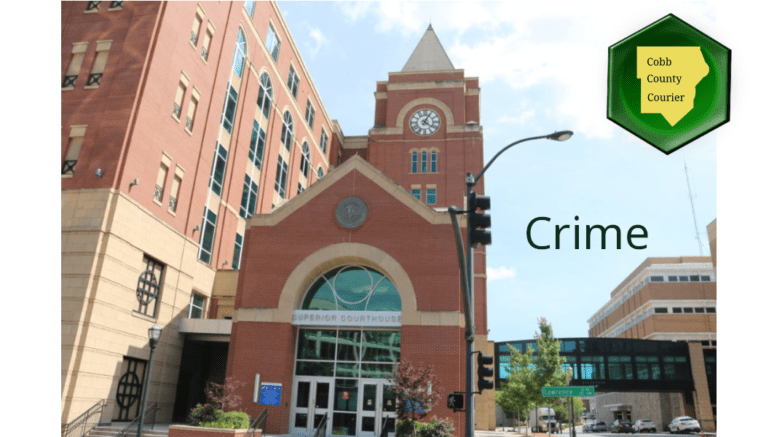Cobb County District Attorney Flynn D. Broady, Jr. announced that Cobb Superior Court Judge Sonja Brown handed down a life sentence to a man convicted of a 2022 Kennesaw rape. On October 16 a Cobb County jury found Corley Willis, 34, guilty as charged.
Background
The booking information from the Cobb Sheriff’s Office lists Willis as residing at an address in the City of Atlanta at the time of his arrest.
The original public information release described the events leading up to the arrest and conviction as follows:
“On April 7, 2022, at UPointe Apartment in Kennesaw, Willis engaged in consensual sexual activity with the victim.
“When she expressed her desire to stop and asked him to leave, Willis turned violent, he forced the victim back to her bedroom where he raped her.
“Cobb County Police Department officers, along with Detective Ben King, investigated the incident, leading to Willis’s arrest in August 2022.”
The jury spent two days examining the evidence, including reports of the DNA tying the defendant to the crime, before returning the verdict.
The DA’s office wrote, “The Cobb County District Attorney’s Office commends the jury for their thorough consideration, emphasizing the seriousness of adult rape, one of the most underreported crimes.”
Assistant District Attorney Katherine “Trina” Griffiths, Donna Merrell, and Lindsay Raynor prosecuted the case.
Willis was represented by Marietta attorney Reid Thompson.
The District Attorney’s office wrote in the public information release, “If you or anyone you know have been assaulted, please call 911 or contact LiveSafe Resources: (770) 427-2902 or visit www.livesaferesources.org”
What is Cobb County Superior Court?
In Georgia, the Superior Court is one of three trial courts found in each judicial circuit. The other two trial courts are State Courts and Probate Courts.
If you watch TV or movie courtroom dramas you’ll be familiar with the most high-profile role of the court. Superior Court in Georgia would be the court where a murder trial would be conducted.
So Superior Court conducts felony trials.
But it also handles a number of other types of case.
The Georgia Superior Courts website describes the varied functions as follows:
The Superior Courts of Georgia is a court of general jurisdiction handling both civil and criminal law actions. Superior Court Judges preside over cases involving misdemeanors, contract disputes, premises liability, and various other actions. In addition, the Superior Court has exclusive equity jurisdiction over all cases of divorce, title to land, and felonies involving jury trials, including death penalty cases.
How are Superior Court judges chosen?
Superior Court judges are elected for four-year terms in nonpartisan elections. If a judge resigns or retires the governor appoints a replacement to serve out the judge’s unexpired term.
The requirements to run for a Superior Court seat are that the candidate be at least thirty years old, has been a Georgia citizen for at least three years, and the candidate has practiced law for at least seven years.
How do I learn about Superior Court judges before elections?
Judicial races are among the most difficult races for the public to research, but the internet has made it easier.
For Cobb County judicial elections there are a number of media that cover the courts and candidates, including here at the Cobb County Courier, the Marietta Daily Journal, the Atlanta Journal Constitution, and East Cobb News.
For biographies of judicial candidates, you can also visit the campaign web pages of the candidates. Those biographies are of course written to put the candidate in the best light, but it’s a good starting point for determining the candidate’s educational and employment background.
To get a list of the candidates, visit the Georgia Secretary of State page for qualified candidate information at https://sos.ga.gov/qualifying-candidate-information
Superior Court is considered a state office, so you would select “State” on the Office Type pulldown menu, the General Primary/Special Election under the Election menu, and “Non Partisan” under the Party menu. Then under Offices scroll down the pulldown menu until you
